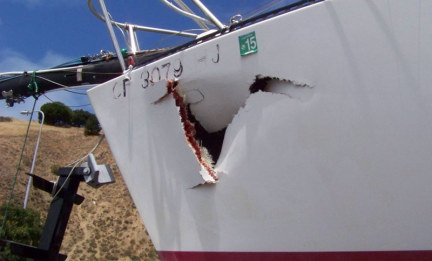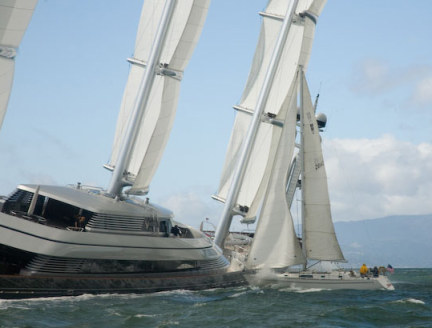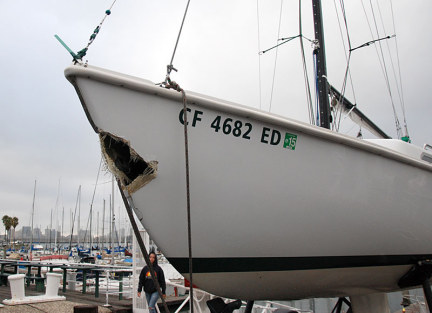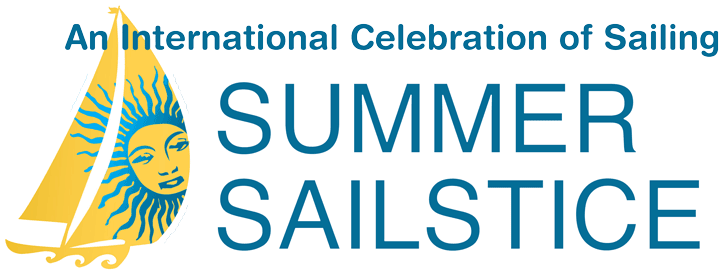
And Therein Lies the Confusion The language of sailing is confusing enough to newbies, but there were times when it was confusing to longtime sailor men, too. Consider exhibits A and B: starboard and port.
“Starboard” is easy enough. Have you ever been the guy in the back of a canoe? Are you right-handed? So which side do you stick the paddle in to steer? Correct – the right. So did every other right-hander from at least the time of the pharaohs. As boats got bigger, rudders stayed on the right side. The term we use today to indicate the right side of a boat comes from the Old English 'steor bord' – literally, “steer board”. Even after rudders were hung in the center, “starboard” stuck. Okay, so say your name is Leif and you're bringing the longship in to load up for weekend of pillaging. Which side do you tie up on? The answer is the left side, which minimized the possibility of damaging the, ahem, steer board. So the left side got to be known as the 'land side', which in both Norse and Old English sounds a lot like “larboard.”

Evidence of Port-Starboard confusion still causes problems. Here, the boat on starboard actually accidentally tacked too close to 'Maltese Falcon'. (Photo: www.lyonsimaging.com)
It's hard to imagine all the confusion and screwups that happened with two words that sounded so much alike – especially during storms or battles. (They must have pointed a lot.) Also hard to believe it apparently took more than 100 years before someone came up with a word which also connotated 'land side' – and it's been “port” ever since.
And then there's the really confusing part.
Helm commands originally indicated which way to push the tiller, not the rudder. So “Hard to starboard!” mean the helmsman pushed the tiller to starboard – and the boat turned to port.
When steering wheels came along, for a very long time, “Hard to starboard!” still meant a turn to port. So the helmsman had to turn the wheel the opposite way. Imagine driving the car and your wife shouts “Turn right!” - but she means turn left. (Actually, now that we think about it, women would have straightened this problem out right away...)
After awhile, various captains and countries adopted either “rudder orders” (aka “wheel orders”) or “tiller orders.” With the former, “Hard to starboard!” mean turn the wheel to starboard. For tiller commands, it stayed the old, weird way. The French briefly added to the confusion by reversing the steering chains on some of their ships so that when you turned the wheel clockwise (to starboard), the ship turned to port. Sacre Bleu!
By the beginning of the 20th Century, most seafaring nations had dropped tiller orders entirely and were using the much more intuitive rudder orders. The last holdouts were our favorite slaves to tradition, the British. Which brings us to perhaps the most tragic port-starboard steering incident in history - the bridge of the Titanic that fateful night of April 15, 1912.
By all official accounts, Titanic's helm commands were tiller orders. So when the iceberg was spotted and the command "Hard to Starboard!" given, Quartermaster Robert Hitchins spun the wheel counter-clockwise and Titanic began her swing to port. This was accurately portrayed in the 1997 movie Titanic, although many sailors pegged it as a mistake.
Then, a few years ago, a British writer dropped something of a bombshell. Lady Louise Patten is the grand-daughter of Titanic's Second Officer, Charles Lightoller, the highest-ranking crew member to survive the sinking. She revealed that he gave false testimony at the official inquiries to protect his shipmates and the White Star Line. The only one he told the truth to was his wife, Sylvia – and Grandma Sylvia told Patten. That alleged truth was that Hitchins either panicked or misunderstood, and at first spun the wheel to starboard. He was immediately told to correct the mistake – and did – but by then it was too late.
No one will ever know if it really happened that way – or if it did, whether it contributed in any way to the rest of what happened that night. But it's easy to imagine both scenarios. The British Merchant Marine service didn't change from tiller orders to rudder orders until the Merchant Shipping Act of 1932 – 20 years later.

Port - Starboard issues still cause suprise today - usually less consequential than the 'Titanic'. Photo: Chris Weaver, Latitude 38
